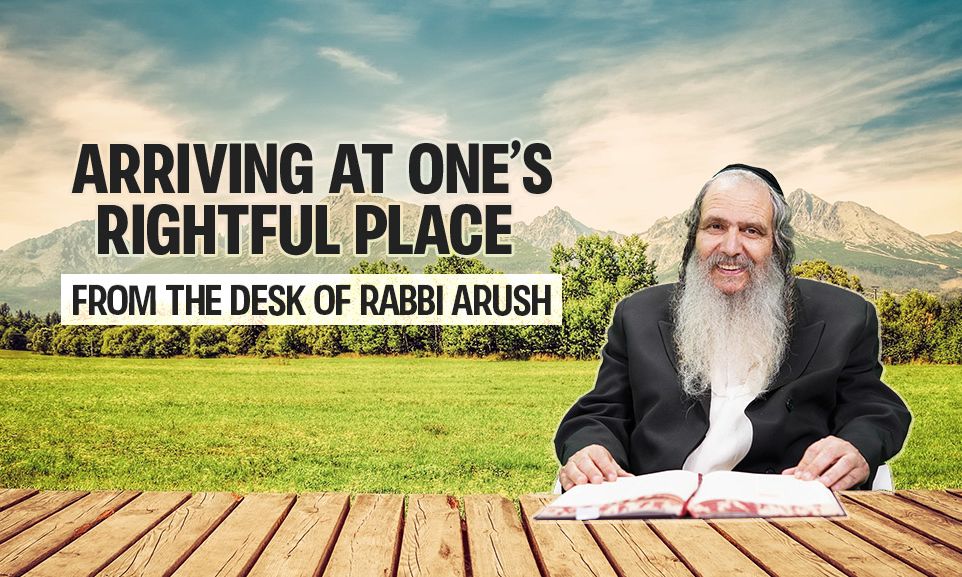
Arriving At One’s Rightful Place in Peace
In our generation, despite many Torah classes, there is still a leadership crisis. War brings this difficulty into focus even more. We must pray intensely that Hashem will reveal the true tzaddikim, wisdom, and daat that can help the entire Jewish People!

Translated from Rabbi Arush’s feature article in the weekly Chut shel Chessed newsletter. The articles focus on his main message: “Loving others as yourself” and emuna.
Quality or Speed?
No one likes to wait. Waiting is nerve-wracking and frustrating, especially in this generation of instant-everything, when everything around us happens so quickly. Waiting online for a whole minute for a service representative is enough to drive us crazy.
And indeed, when we are searching for accessible information or desire efficient customer service – we demand a quick response. But there are things in life for which quality is important, not promptness. If we want advice or medical treatment from a recognized expert, we will have to wait, and it is worthwhile if we wish to receive the most professional and reliable treatment.
The same thing is true if we want to consult about a big business deal that will influence our entire lives. We will be willing to wait as long as necessary to receive the fullest and most complete consultation, the one most suitable for our situation, from the richest and most experienced person.
In such cases, the importance of the promptness of response is marginal, and we will accept any waiting period, as long as we get the highest quality and most complete response.
Not a Halachah Hotline
With this background, we can understand the discussion between Yitro and Moshe Rabbeinu.
These days halachah hotlines are very common. Jews need to know what the halachah is in various cases, and this can be at all hours of the day; and they don’t always have a rabbi who is easily reached. Hashem yitbarach, in His mercy, arranged for us telephone lines manned twenty-four hours a day by the best of the Rabbis, who give rulings according to the different customs, the idea being to give a prompt and precise ruling to every Jew, any time of the day or night.
If Moshe Rabbeinu was another kind of halachah hotline, then Yitro was completely right. Reason dictates that there should be maximum availability to every single citizen, and a judicial system like the one suggested by Yitro to Moshe Rabbeinu is efficient and quick, and a great relief for Moshe Rabbeinu, as it removes much of the load from him.
But Moshe Rabbeinu replies to Yitro: “When the people come to me to inquire of G-d…” True, there are laws and instructions that can be imparted more efficiently by a judicial system, and indeed there is room for that, and Moshe does, indeed, listen to his father-in-law. But those who want to “inquire of G-d” – that one needs Moshe Rabbeinu himself, because he is the one who stands between the people and Hashem, and he is the one who passes on to the people the most precise and suitable message to each one, according to his situation and case.
A Jew who wants something critical to his life, such as to receive the complete instructions for his situation, the precise guidance towards his tikkun (rectification), the perfect healing for his soul, the pure and complete emuna (faith), clarification and tikkun of his misleading imagination – he will certainly prefer to wait days and weeks and even years to meet directly with Moshe Rabbeinu, as opposed to various go-betweens, important as they might be.
See the Ramban’s commentary here and in the book of Devarim, who says that to “inquire of G-d” meant that they came to Moshe so that he should pray for them in their time of trouble or seek advice in matters that require Ruach Hakodesh (Holy Spirit)! And of course, this can happen only with the greatest tzaddik.
Soul Healer
Rabbi Nachman of Breslev writes unequivocally in Likutei Moharan in Torah 30:2:
“For, everything that is small and far away, needs the greatest teacher… Because the sicker the patient is, the greater the doctor he needs. Therefore, a person should not say: ‘It will be enough for me if I will be close to a respected man who fears G-d, even though he is not immensely great; if only I were as advanced as he is.” He shouldn’t say that! Because, on the contrary, as a person knows himself the extent of his failing and the extent of his being distant, for he is very distant from Hashem yitbarach,… and also everything that he knows of himself that he is very distant, must seek a very, very great doctor for his soul, the greatest; in other words he should repeatedly and always ask to have the merit of attaching himself to the very, very great rabbi, as mentioned. For the smaller he is, the greater the teacher he needs.”
The thought that Rabbeinu brings up here is very common: “It will be enough for me if I will be close to a respected man who fears G-d, even though he is not immensely great; if only I were as advanced as he is.” I have a nice rabbi in my neighborhood, the head of a Kollel, I have the halacha hotlines. This is a great enough rabbi for me. Why should I have to search for the greatest rabbi for myself? What am I lacking?
Chas veshalom, we do not wish to belittle any rabbi. They are all beloved and are all holy. And every Jew must have a connection with the rabbis where he lives and with his rabbis who taught and teach him Torah, whether it is through halachah classes, or practical rulings, or in teaching him life lessons regarding child education and shalom bayit ,and more. And if this rabbi is easily accessible to him – that is certainly an advantage.
But when a Jew is seeking a tzaddik who will bring him to his purpose and to a complete fulfilling of his role in this world, so that he won’t, chalila, miss out on the goal and purpose of his life – he must be willing to devote his strength and time to seek out and find the greatest tzaddik, because these are matters of life and death.
Rebbi Nachman’s Last Will and Testament
Therefore, Rebbi Nachman of Breslev’s instruction in his last days was “to seek and search very much a real leader to become close to.” And this is a concept that is a basic principle in Judaism, as he writes in another place: “The main principle and foundation that everything else is dependent upon [is] to connect himself to the tzaddik of the generation.” Unfortunately, this concept is very far from even most of the G-d fearing people in our generation. And that is why it is very important to understand this point in practical terms.
Rabbi Natan of Breslev, in Likutei Halachot, emphasizes again and again in many halachot, and explains that it is not enough to find a great and holy tzaddik, but one must always continue to look for his Ruach Hakodesh, his true daat (understanding), whether in his lifetime or after his death, and to search for his true disciples who continue his way in avodat Hashem and in his Ruach Hakodesh that has been passed on to his disciples.
And the main thing is to do this practically: to pray each day for the merit of becoming close to the true tzaddikim, those that have the power to illuminate the world for us and to bring us truly close to Hashem and to cause us to do complete teshuva. Rabbeinu says there: “But really one must search and seek very, very much after a true leader like that, and one must beseech Hashem yitbarach to merit becoming close to a true leader, so that he should gain true and complete emuna.” This is because this world is full of mistakes and misleading things, as Rabbeinu says about the passuk: “At times, the path before a man seems straight, but its end is in the paths of death.” Only a true tzaddik who knows the roots of the souls of Yisrael can guide each one on a straight path according to the root of his soul.
Don’t Make Do With Less
All of a person’s tikkun depends on this. It is critical – not an extra, and therefore one must never stop praying to come close to the greatest tzaddik who has the power to rectify Jewish souls. It is worthwhile to pray and wait days and years – even if the person will manage to find the tzaddik at the end of his life and be close to him for only one hour.
And therefore, Bnei Yisrael who wanted to receive their tikkun were not willing to go to any judge or rabbi besides Moshe Rabbeinu himself, because they knew that the very fact of seeing the tzaddik’s face and the very merit of speaking to him and telling him what they’re going through – “When they have davar (something), they come to me” – that in itself constitutes coming closer to the tzaddik as explained in Likutei Moharan in Torah 4. The Tzaddik explains and clarifies his way for him according to the root of his neshama (soul).
That is why, when Moshe retells the story of appointing judges to the Jewish People in Parashat Devarim, he starts off with: “Eicha – How can I bear along all your problems, your burdens, your disputes?” and Chazal say that the word Eicha is hinting here to Megillat Eicha, the megillah of the destruction of the Temple, because all the destruction and the Jewish People’s veering from their purpose starts from their not seeking and demanding to be with the tzaddik.
In our generation, Baruch Hashem, there is Torah everywhere, many Torah classes, and may there be more. But there is still a lack of guidance. There is a big leadership crisis. Days of war bring this difficulty and lack into focus even more. And therefore we should be praying intensely that Hashem yitbarach will reveal to us the true tzaddikim and the wisdom and the true daat that can help the entire Jewish People and each Jew wherever he is, according to his status and the root of his soul – to find the way and the path to come closer to Hashem in truth, and only in that merit we will gain the revealing of the Melech HaMashiach and the complete Geula with mercy, and see the fulfillment of the passuk from this parasha: “And all these people will arrive in their rightful places in peace.” Speedily, in our days, Amen.


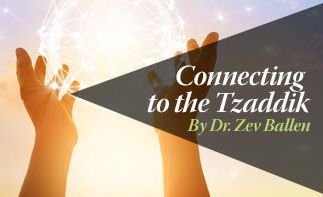
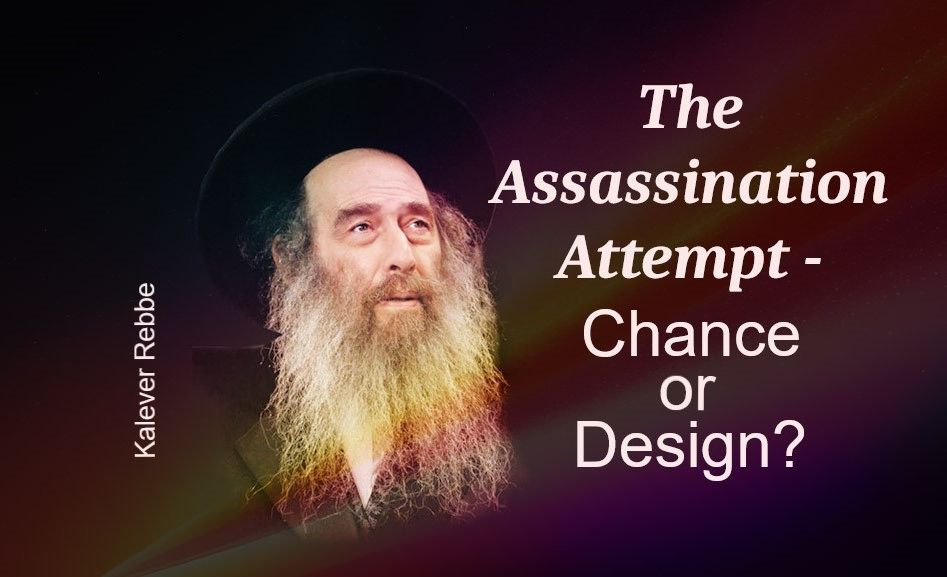
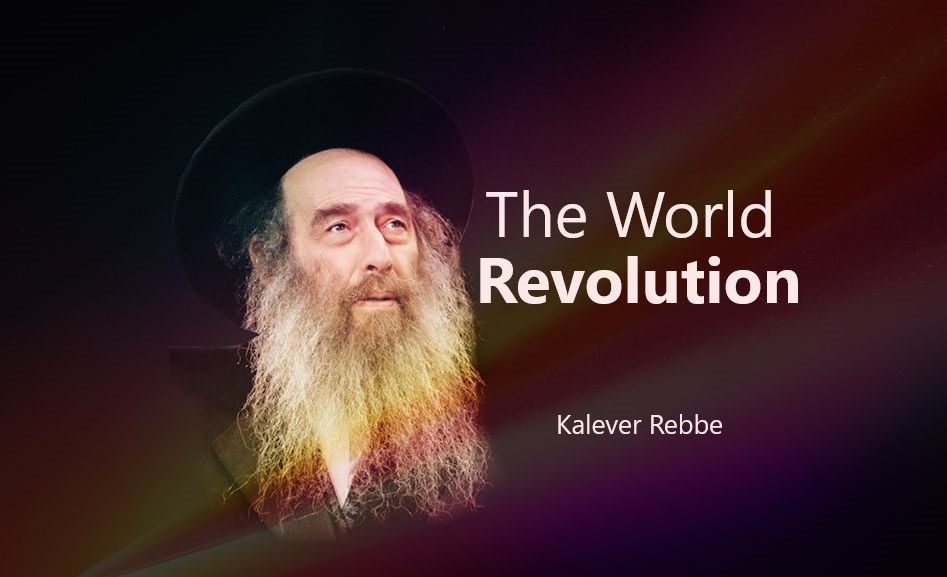

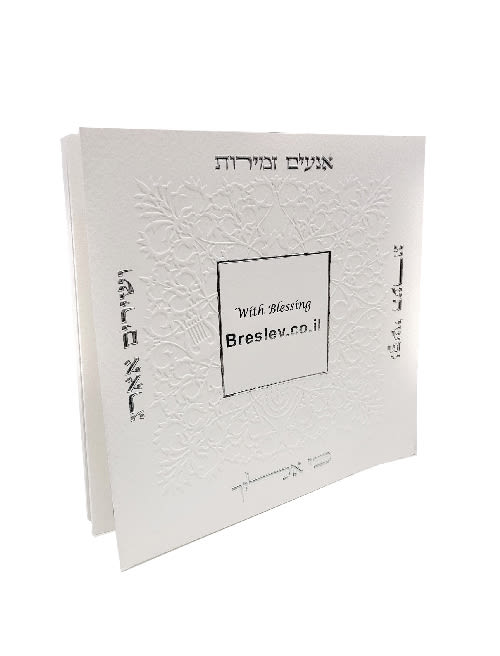
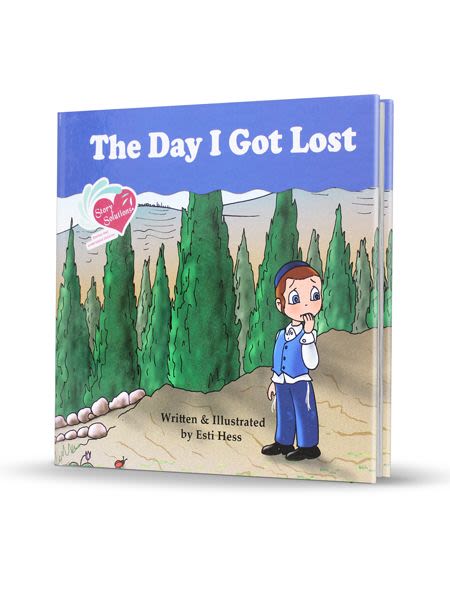

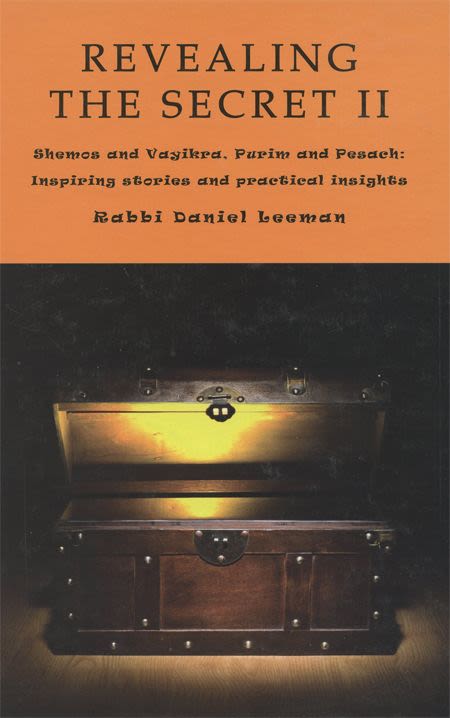

Tell us what you think!
Thank you for your comment!
It will be published after approval by the Editor.